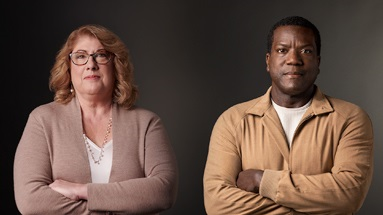Do you need a multivitamin during cancer treatment?
Do you need a multivitamin during cancer treatment?

Using a dietary supplement, like a multivitamin, is a helpful way to fill in nutrients you may not be getting from your diet. While these supplements may be helpful for picky eaters, those with a low appetite or individuals who can’t consume certain foods due to food allergies, it is recommended that you get the majority of your nutrition from food instead of supplements. Mixed information from friends and family, as well as an overwhelming number of options, can make it hard to make a decision on dietary supplements. There are many factors to consider when taking a supplement, and you should always check with your physician and healthcare team before taking any new products. Here are some useful tips to take into account when looking into dietary supplements.
Melissa Rifkin, a registered dietitian, talks about the ways you can increase the nutrients, including vitamins and minerals, through the food you consume.
Benefits of using a dietary supplement
A multivitamin should not replace nutrient-rich food; however, these supplements may come in handy for those with certain cases. In periods of low appetite and food intake, like those going through cancer treatment, a multivitamin can provide essential nutrients when one is not able to consume them through the diet. Additionally, the American Cancer Society suggests, “If your food intake has been limited for several weeks or months because of the effects of treatment, be sure to tell your doctor. You might need to be checked for vitamin or mineral deficiencies.”
Concerns when using a dietary supplement
If you are undergoing cancer treatment, you should never take a dietary supplement without discussing it with your medical team. According to the National Cancer Institute, “There are no studies that prove that any special diet, food, vitamin, mineral, dietary supplement, herb or combination of these can slow cancer, cure it or keep it from coming back.” In fact, some ingredients in dietary supplements may potentially interfere with medication, including those for cancer treatment, so be cautious choosing a supplement and remember to consult your healthcare team.
Replacing a multivitamin
It is well established that proper nutrition is beneficial if you are going through cancer treatment. Use these tips to increase the vitamin and mineral intake from food you are eating.
- Consume at least five servings of fruits and vegetables, combined, each day. These can be raw, cooked, blended, juiced and served alongside any of your favorite food items that may help increase your intake.
- Use dairy products, like yogurt, milk and cheese, to increase your intake of calcium. If lactose intolerance is an issue, use lactose-free alternatives, like soy, coconut and almond milk products that are fortified with calcium.
- Prepare meat daily to consume iron. If you are a vegetarian or just don’t care for meat, focus on plant-based sources like lentils, beans, dried fruit and tofu to increase your iron intake.
- Choose a variety of foods rich in many different colors to provide a broad spectrum of micronutrients. Individual food colors are associated with specific nutrients, so eating the “rainbow” will be beneficial in increasing nutrients of all types. The American Cancer Society states “If you want to take in more antioxidants, health experts recommend eating a variety of fruits and vegetables, which are good sources of antioxidants.”
While a dietary supplement may be helpful in some situations, always do your best to increase nutrients through the food you consume, and talk to your treatment team before taking any new products.
The information contained herein is provided for educational purposes only and is not intended to replace discussions with a healthcare provider. All decisions regarding patient care should be made with a healthcare provider.
Melissa Rifkin, MS, RD, CDN, is a registered dietitian from New York City where she has spent the last 10+ years working in oncology, surgery and bariatrics. She holds a bachelor’s degree in dietetics and a master’s degree in clinical nutrition. Melissa enjoys sharing her knowledge of nutrition and overall well-being through her Instagram account (@confessionofadietitian).













